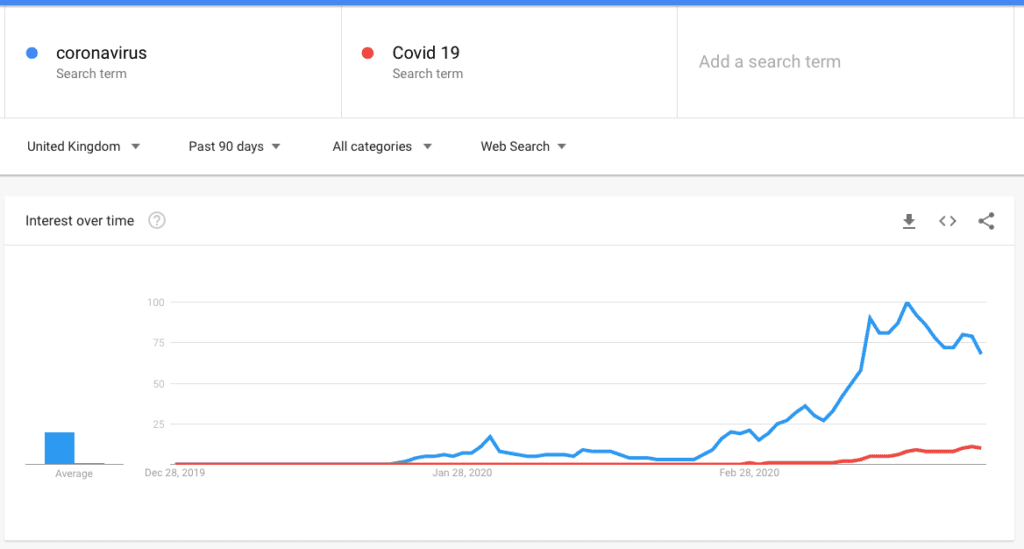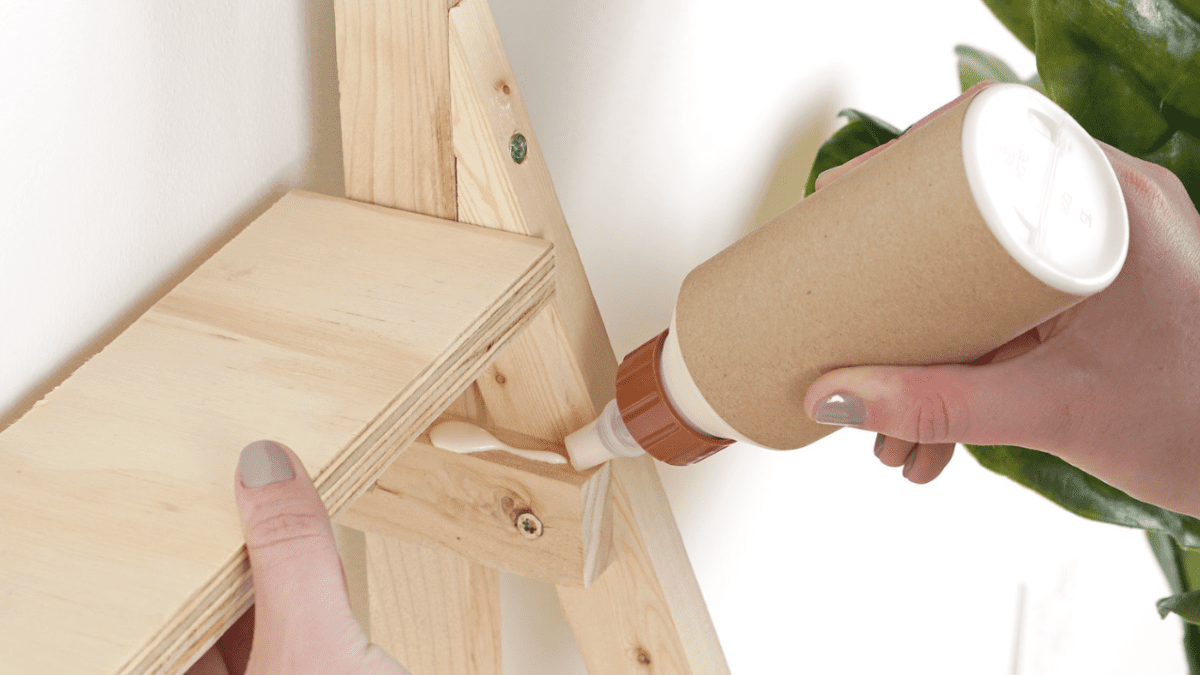Coronavirus fundraising. What we've learned so far
We are now about two weeks into the Coronavirus crisis in the UK. Dust is beginning to settle and we are getting some idea about what is becoming the new normal. Though we can still expect things to change, I thought it might be useful to share what I've learned so far.
Though the amount of fundraising advice available has ballooned in recent days, at Bluefrog we are now seeing the impact of live campaigns. We have also started to get feedback from donors about how their wants and needs are changing and are also regularly engaging with fundraisers, all of whom seem to have similar questions. So hopefully the following will be of use.
Should we use the term Coronavirus or Covid-19 in our communications?
Feedback from our research into donor attitudes to giving during the current time has shown that apart from one individual, everyone that we have spoken to uses the term Coronavirus not COVID-19. I'd suggest you use this in your communications as it is the term people recognise and use. A quick search on Google Trends over the last three months shows how dominant the use of Coronavirus is. Covid-19 is growing in popularity – particularly in the broadsheet press – but is nowhere near as common a term as Coronavirus. At Bluefrog, we are now changing communications to reflect this finding.
If you have already launched a strongly branded Covid-19 campaign, I don't think that you need to rename it. Just make sure that you use the term Coronavirus as well.

Should we still fundraise during the crisis?
YES! You should not abandon fundraising efforts. Your cause remains important. You will still need funds to operate. And most importantly, your supporters will want to ensure that you are focused on the needs of your beneficiaries at a time of crisis.
What’s more, you may be facing shortfalls as events have to be cancelled and charity shops closed. Your donors understand this, they still care about your cause, they still want to help.
Though it is still early in the crisis, I don't know of a single appeal that isn't working well. Our research is showing that the need for people to engage with organisations helping others is very powerful. As I said in my discussion with Giles Pegram last week, donors are flexing their philanthropic muscles, and this is strengthening their desire to be part of the global solution to the Coronavirus pandemic.
How are people going to give if they can't get to the postbox?
In all communications ask your donors to give online where possible. You can still use donation forms and response envelopes where government guidance still allows people to leave their homes. They also act as a reminder that a response is wanted.
Can I ignore this whole thing and carry on fundraising as normal?
NO! This is a global pandemic and it’s affecting all our lives in unprecedented ways. We should not ignore it. So any appeals – DM, Digital, even TV – should acknowledge the crisis and show how your organisation is mitigating the impact of the virus, how you are helping your beneficiaries and dealing with the impact of increased demand against the pressure of cancelled public fundraising events.
I’m about to send an appeal/launch a campaign/go live with an ad. Do I have to pull it or delay?
NO! Unless there is a very special reason, we’d advise you to go ahead BUT, if you can, place your appeal into context. This doesn’t necessarily mean you have to redo your entire appeal – it does mean you have to look critically at it and amend any jarring messages (now’s not the time to promote ‘free hugs for all!’ for example. But fear not – you don’t have to cancel. Free ‘virtual’ hugs for all could still work). In some cases, all that’s required is a simple acknowledgement that a great deal has changed since the campaign was filmed/written/etc. but you still need donors’ support. If you’re about to send out a DM pack, we’d make three suggestions:
- Add a stop-press / lift letter as a low-cost last-minute addition to explain what you are doing in the face of the Coronavirus pandemic.
- Adapt your donation form to capture email addresses and telephone numbers (along with relevant permissions), explaining that they are important communication channels should mail services be interrupted.
- Consider an option to give a regular / monthly gift to last the duration of the pandemic.
And if your appeal is showing donors what they have done, reminding them of their importance or sharing success stories you should definitely send it. Even if you work for an animal charity and are sharing cute pictures or a university reminding people about their time studying in less stressful times, you should place your appeal into context, and definitely send it. In these dark times, people want to know they are part of a community and that they are not powerless. They also want to be cheered up and reminded of what used to be normal life.
Should I launch an emergency appeal?
If your charity or your beneficiaries have been impacted by Coronavirus, the answer is probably ‘yes.’ In fact, one of the few instances we’d suggest pulling a communication is if you’re going to replace it with an emergency appeal.
We are finding that good, relevant appeals are working very well at the monent. They will be especially effective for any social care, healthcare and research charities (and if you are a charity that works in these areas you should be well on your way to getting your emergency appeal out) but appeals will also work well for anyone who’s going to be affected. If Coronavirus is increasing demand for your services in any way or had a negative impact on income you should tell your supporters and ask them to help. Integrate email, direct mail and social media. We are now launching press ads and will keep you updated on how they work.
But please, get your data right. If every charity asks everyone on their list, it's going be overwhelming. Focus on your core donors.
But won’t supporters be worried about their jobs and finances?
Yes, some of them definitely will so you need to be respectful. Acknowledge that this is an uncertain time for many people, and go out of your way to let them know that they should only help if they are able. It’s okay to suggest amounts but be clear that you will be grateful for anything your supporters feel able to spare. Even if they aren’t able to help, most of your supporters will expect you to launch an appeal if you need their help at this time. They care about your cause and want to know that you are being proactive about making sure you can continue to do the work that matters to them.
What about legacies?
There has been a significant increase in the amount of traffic on the legacy sections of charity websites.
Freewills.co.uk reported that they had more people writing wills with a gift to charity in March than they saw in the previous four months added together.
A staggering £436,368 in legacies was left to 133 different charities by people writing Wills via our website last week. Many thanks to all those who did so.
— FreeWillscouk (@freewillscouk) March 23, 2020
This means that donors want information on leaving a gift in a Will, so you should ensure that this is easily available online and for download. If you have a free will writing service or simply offer support and advice, this should be easy to access. You should also offer the services that donors may want to use regarding legacy giving on your website and Facebook pages.
However, for very obvious reasons, we are currently advising against launching legacy recruitment campaigns.
Now is the time to ensure that your landing page is clearly offering what donors are looking for and is appropriate for the current climate. Do you have an easily downloadable guide for people who may be worried about requesting post? You can do these things right now to help your donors. And, of course, keep in touch with your supporters, improve stewardship journeys and ensure everyone knows that gifts in Wills are welcome at any time.
I work for an arts organisation, university or in the culture sector – should I still fundraise?
YES! It can be easy, in times like these, to feel that we aren’t as important as some organisations more closely linked to social welfare, healthcare or research, but remember, the arts are important. Education is important. History is important. You know this, or you wouldn’t be with your organisation. And when we all come out the other side of this thing, we’ll need your services more than ever. If you’re facing a shortfall because of cancelled events or closures, it’s okay to ask supporters (respectfully) if they’re able to help. If students are suffering economically or if you’re involved in educating the doctors or researchers of the future – that’s something people really understand the value of right now. And if you are in any way involved in research related to Coronavirus – now is the time to launch an emergency appeal.
Adrian Salmon has written a great piece on fundraising for universities during the current crisis. It is well worth reading.
If fundraising is not possible for you, consider other ways to stay in touch with supporters. Send updates, share plans for when museums and galleries can reopen, ask donors what they’re most looking forward to having access to again and if you can offer your services digitally, you should. It’s important to stay in contact – many people are feeling isolated right now, so knowing they’re still part of your community can help.
A great example of this is the rebooting of The VanGoYourself challenge from 2017 for a range of artists to bring art into people's lives within the framework of our current situation.

I work for an INGO. Is it appropriate for us to launch an appeal?
YES! The Conoravirus is causing havoc in wealthy countries. Few people have been even able to focus on the impact it will have in the developing world. The virus is in nearly every country and is spreading. With no vaccine or cure available it is estimated that without social distancing, between 25% and 80% of a population will be infected. Social distancing is practically impossible if you live in a refugee camp or a slum. And how do you wash your hands without clean running water?
At Bluefrog we have already started preparing fundraising campaigns for some of our international development clients. You should start planning now and begin collecting the information you require to get appeals out quickly. And, of course, if you have lost money through the closure of shops or the cancellation of events there is even more reason to ask.
We have launched our emergency appeal. What do we do next?
Your traditional communication programmes should be reviewed and adapted according to the new world we are fundraising in. We have spent a considerable amount of time on this question and are recommending more frequent communications with a focus on showing donors how their gift has been used and the human impact it has had. Continue to highlight the need of your constituency and empower your donors by offering them the chance to help. This may well be the time to ask for regular gifts or upgrade, perhaps for the length of the emergency. Your exact plan will be influenced by the area that you work in, how the Coronavirus has impacted on you and what your needs are. Different audiences will also need different approaches. This is quite a complex area without a one-size fits all answer so if you need advice or want to discuss thoughts, let us know. You can get in touch at [email protected].
And finally, what do donors think?
I mentioned our research at the beginning. We have found a significant level of support for charities at this time. With so much that is uncertain, donors see you as part of the glue that is holding things together. We will be sharing the findings from our study into donor attitudes towards giving during the time of Coronavirus as a blog post and as a free to download podcast. This has been conducted over the last two weeks and is still ongoing. I plan to share this on Friday, 3rd April. So please bookmark or subscribe for the update - the button is at the top of this page. If you have any specific questions about our findings – or if you would like us to speak to your supporters to find out what they think – please get in touch at [email protected].
With thanks to Bluefrog's Creative Director, Wainani, for much of this insight.
Main picture credit - proflowers.com
Tags In
Related Posts
7 Comments
Comments are closed.
The Essentials

Crack the Code to Regular Giving: Insights, Strategies, and a Special Giveaway!

‘Tis Halloween. Keep to the light and beware the Four Fundraisers of the Apocalypse!

Why do people give? The Donor Participation Project with Louis Diez.

A guide to fundraising on the back of a postcard

What does the latest research tell us about the state of fundraising?







[…] Coronavirus fundraising: What we’ve learned so far, Mark Philips advises fundraisers to go ahead with the appeal, but carefully. Mark urges charities […]
[…] Coronavirus fundraising: What we’ve learned so far, Mark Philips advises fundraisers to go ahead with the appeal, but carefully. Mark urges charities […]
[…] launch an Emergency Appeal? Should you pause or delay an appeal? What about legacy fundraising? Coronavirus fundraising. What we’ve learned so far. New from Mark Phillips. The $2 trillion coronavirus stimulus bill encourages Americans to donate […]
[…] an Emergency Appeal? Should you pause or delay an appeal? What about legacy fundraising? Coronavirus fundraising. What we’ve learned so far. New from Mark Phillips. The $2 trillion coronavirus stimulus bill encourages Americans to […]
[…] Coronavirus fundraising. What we’ve learned so far […]
[…] Coronavirus fundraising. What we’ve learned so far […]
[…] Coronavirus fundraising. What we’ve learned so far […]